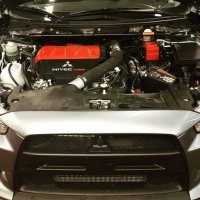Access Monthly Deals!
Announcements
-
Similar Content
-
Latest Posts
-
That's the thing. Cam is smaller than before.. though the old cam was +6 degrees advanced. We're talking huge changes here, the narrowbands want to trim out 20% of fuel and pull the (wideband) idle to like 16.0 AFR or such. One side is a little more trimmy than the other. Think along the lines of ~20% to ~15-18%. Unfortunately my scouring of the internet hasn't really found anyone with this issue. People either just disable NB's or have them wildly different, where one is -20% and the other is +20 or 0 (i.e a sensor is just dead/wiring is just busted). Turning them off and relying on the base map only results in the wideband reporting at about 14.0 with the Varex closed. It'd be a little leaner (closer to 14.7ish) with the Varex open. I know I can just change the switch points so that the narrowbands agree with the wideband, but it's still odd. Both of them are reading voltage, it's just that they're reading quite high mv, in the ~800 region. It's just odd. This was with the IAT fudged to report it was about ~22 degrees which is my guesstimation of the temperature in the room. I have an OEM sensor ready to try tonight, which is slow and crap - but .. worked last time I used it. Sadly I am aware that idle tuning with the big TB is going to be a PITA and I look 'forward' to many hours spent stalling or stumbling idle or delving into drivability things.
-
The GTR strut brace clears the new manifold.. by about 0.5mm. So this means I need to buy an OEM GTT Strut brace (again), which will clear the new manifold, but not the bonnet vents. I guess I can sell the GTR Strut brace with the bonnet with the vents as a package deal as someone will need this one day. So my choices are vented bonnet but no strut brace, or GTR Bonnet with OEM brace (which I have to buy) but is bright red instead of the same colour as the rest of the car, which means the entire front end of the car will just be red until it goes back to paint jail. In other news the engine starts and doesn't leak. Why both O2 narrowband sensors think the tune is rich AF I do not know. The idle is also pretty shitty and my expensive IAT sensor from the USA is dead. The car sounds awful. But I assume or at least hope this is due to the many exhaust leaks, and the concrete garage it is in, sitting there with 0 intake bolted to it, and no bonnet or panels or anything to stop the induction/intake sound which is about 200db.
-
C'mon! At least come kicking and screaming into the 2000s. BA XR8 bulge.
-
No such thing as E30 in Sydney servos As stated above, flex fuel is your only viable, and "safe" option I believe
-






Recommended Posts